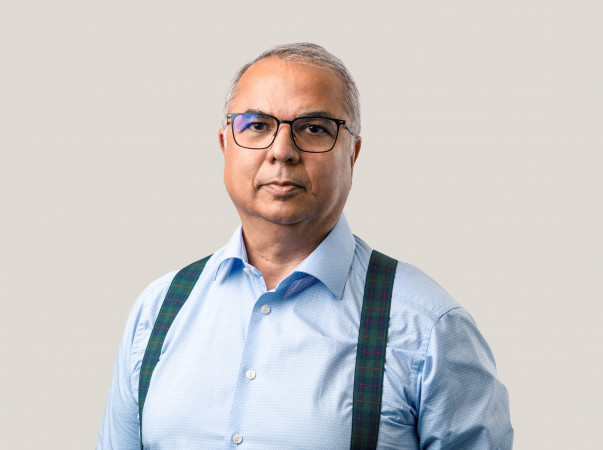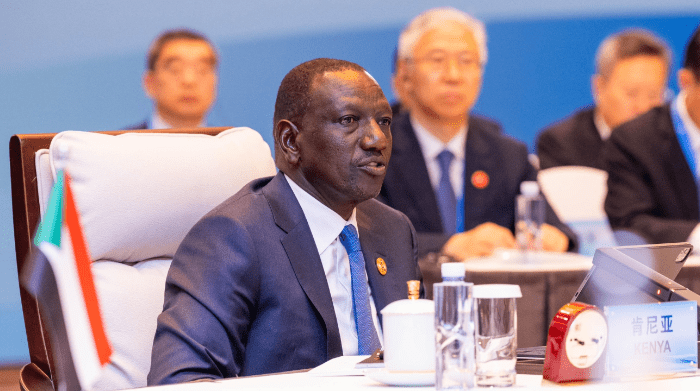Making world better with self-disinfecting technology

In 2010, Sanjeev Swamy, founder and CEO of Livinguard technology met with a Brigadier from the UK’s Special Air Service (SAS) who challenged him whether he could make an underwear that his soldiers could use for days or weeks without changing in the worst hygiene conditions.
As a technical textiles expert, Sanjeev knew that he had to find a way to permanently fix a skin safe technology onto fabrics that could protect the skin while destroying infections. That is how his company Livinguard, an environmentally friendly hygiene technology platform based in Cham, Switzerland, which empowers textiles and other materials with self-disinfecting properties. It also licenses its patented technologies to companies from various industries to improve the health and wellbeing of consumers.
It has created a robust tech platform with 200 patents granted and over 2,000 projects in the pipeline since it was founded. These span applications using textiles (apparel, masks, upholstery, period panties), plastics (seat covers, pipes, diapers), air filtration, water filtration and more.
Preventative impact
“With diverse applications, Livinguard has spent the last few years focusing on key issues where we believe we can make a preventative impact. One of these causes is Tuberculosis (TB), which we have worked on designing a washable, reusable, filtering mask with our antimicrobial technology. We found that it effectively killed Mycobacterium TB, making it a viable tool in the prevention of the spread of this disease,” says Sanjeev.
The Covid-19 pandemic came just at the time when they had finished creating the mask technology and was tested by the Indian Council of Medical Research. With the opportunity, the company switched gears and had the technology tested for Sars CoV 2 in Germany, and worked to create masks that became a tool to combat the spread of the pandemic across the world. With the pandemic now ‘gone’, Livinguard continues reinventing hygiene and is committed to its pillars of permanent disinfection, sustainability and social impact such as water purification, Saafkins, and medical apparel.
“Much of the developing world struggles with access to safe drinking water and hygiene facilities. Soon after Livinguard completed our initial testing and validation, I had conducted an experiment in which we passed microbiologically contaminated water through a few layers of Livinguard treated fabric.
We found that the microbes were actually attracted to the fabric and destroyed, allowing pathogen free water to collect in the glass below. This sparked the idea of creating electricity-free water filters that combine existing pre-filtration mechanisms and the Livinguard technology to produce safe drinking water from any freshwater source at prices as low as US$1 (Sh116) for 1,000 litres of water,” he explains.
Saafkins are Livinguard’s washable, reusable, antimicrobial period panties and sanitary pads. At prices as low as US$4 (Sh464), a menstruation’s needs for an year can be managed in a sustainable and hygienic manner.
“We are now working on localised manufacturing in parts of Africa to combine economic growth with better health outcomes. We are also proud to be a partner of GiveHer5, a social initiative working towards eradicating period poverty,” adds Sanjeev.
Cross contamination
One of the major problem facing hospitals is the ability to create and sustain bacteria-free environments for patient care. While there are many transmission pathways for bacteria, viruses, and fungi, a particular concern is the potential for textiles to act as fomites.
Livinguard has designed medical apparel that is able to destroy microbes at a 99.99 per cent efficacy within 10 minutes. This means that the risk of cross contamination and overall bio-burden in healthcare settings is greatly reduced.
Their masks were scientifically tested to guarantee the antiviral/anehtibacterial properties at 99.9 per cent for up to 30 washes and if washed once a week (their recommendation), they last a minimum of six months. This means that one Livinguard mask is the equivalent of 210 disposable masks.
Hygiene effectiveness
The pandemic has shown the general population the effectiveness of hygiene measures such as social distancing, handwashing and wearing of face masks in preventing infections of all kinds. Sanjeev feels that there is already a shift in consumers mind, where people become more sensitive to their surroundings and will probably still continue wearing masks in certain places for safety and protection reason.
“Moreover, the world still battles lung disease and harm—whether it’s the mining industry, pollution or TB, masks can be an effective tool in improved lung health and would continue to have applications within healthcare.
One of the major learnings from the pandemic is the harm of continuously using disposable hygiene products. Livinguard has designed reusable medical masks and apparel that can be used by healthcare professionals, providing them with the highest level of protection while safeguarding the environment. Our overarching goal is to make innovative hygiene solutions available to everyone, all the time, all over the world, without destroying the world we live in,” he continues.
When it comes to the challenges of mask disposal, Sanjeev has witnessed a significant mask litter and disposal problem in our landfills and oceans. He believes that the adoption of disposable products will have long lasting consequences to the environment.
He says: “We believe it is our responsibility as an innovation driven company to provide people with affordable, effective and convenient sustainable alternatives. When it comes to incineration, leaving the entire burden of the clean up to our municipalities and governments is not a sustainable practice. We need people to start making more sustainable choices and driving more sustainable innovation.”










